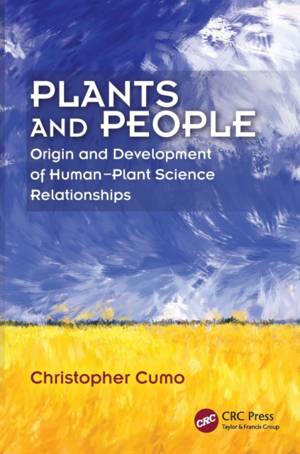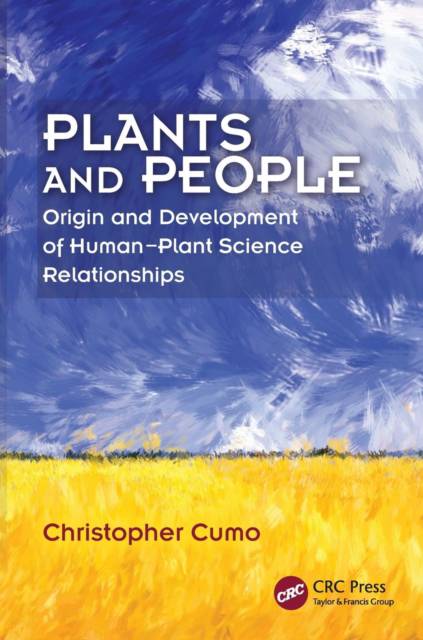
- Retrait gratuit dans votre magasin Club
- 7.000.000 titres dans notre catalogue
- Payer en toute sécurité
- Toujours un magasin près de chez vous
- Retrait gratuit dans votre magasin Club
- 7.000.0000 titres dans notre catalogue
- Payer en toute sécurité
- Toujours un magasin près de chez vous
Plants and People
Origin and Development of Human-Plant Science Relationships
Christopher CumoDescription
An exploration of the relationship between plants and people from early agriculture to modern-day applications of biotechnology in crop production, Plants and People: Origin and Development of Human-Plant Science Relationships covers the development of agricultural sciences from Roman times through the development of agricultural experiment stations in the United States to the rise of agri-business. It underscores the symbiotic relationship and mutuality that define the intertwined histories of plants and people. It does not merely present the latest science but puts the sciences themselves in the context of history.
The book provides the science, chronology, and history that undergird the relationships between humans and plants. It discusses plant anatomy, physiology, and reproduction; evolution of plants and people; early uses of plants; the rise of agriculture in both Old and New Worlds; creation of land grant universities and agricultural experiment stations; the Green Revolution; plant biotechnology; and the future of plant sciences in feeding the growing human population.
The agricultural sciences were not a product of the nineteenth century but of the careful observation and advice of Roman writers who lived some 2000 years ago. This book reveals the malleability of the sciences, the people who practice them, and the plants that are the focus of scientific research. The author is careful to distinguish between basic and applied science while recognizing that the agricultural sciences pursue both. He also challenges the traditional notion that basic research necessarily yields practical results. The book demonstrates how plants and the agricultural sciences have shaped the everyday world we inhabit.
Spécifications
Parties prenantes
- Auteur(s) :
- Editeur:
Contenu
- Nombre de pages :
- 288
- Langue:
- Anglais
Caractéristiques
- EAN:
- 9781498707084
- Date de parution :
- 05-10-15
- Format:
- Livre broché
- Format numérique:
- Trade paperback (VS)
- Dimensions :
- 155 mm x 231 mm
- Poids :
- 430 g

Les avis
Nous publions uniquement les avis qui respectent les conditions requises. Consultez nos conditions pour les avis.






